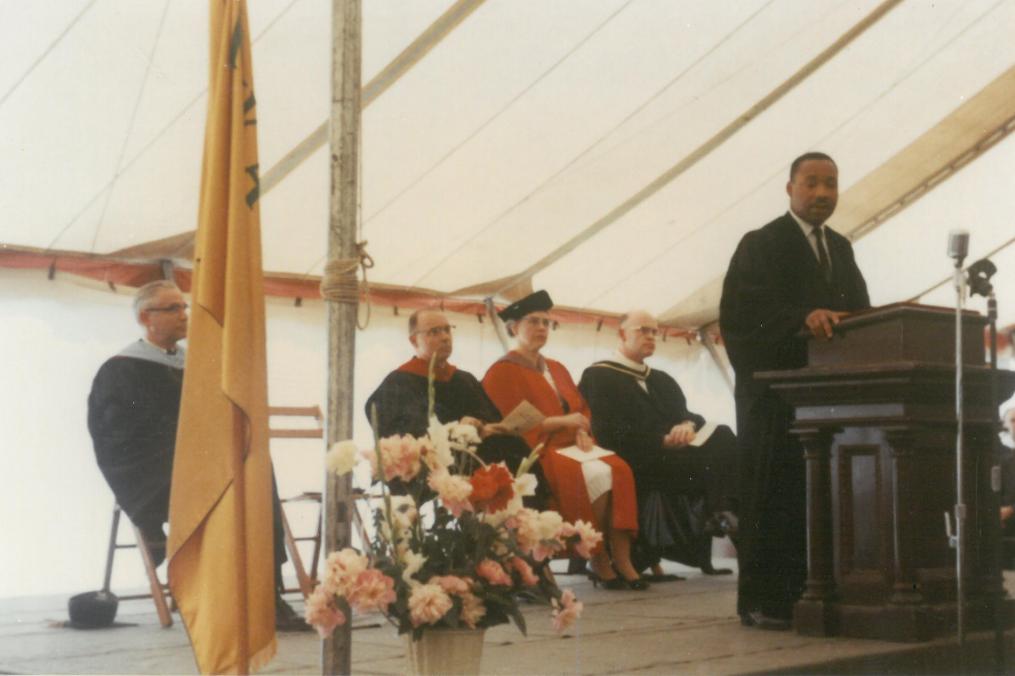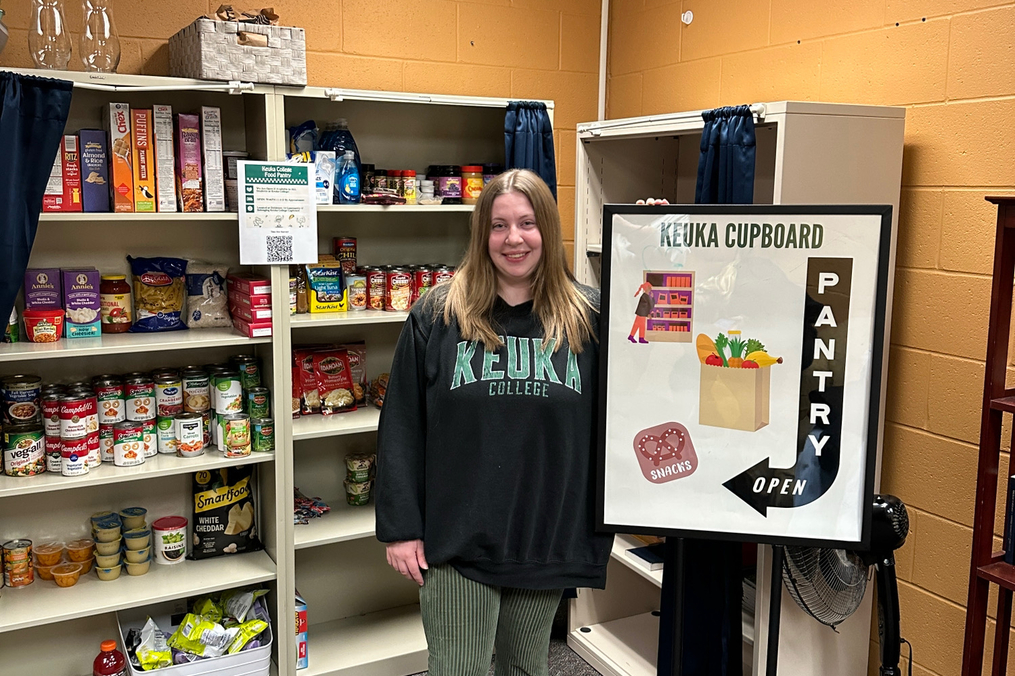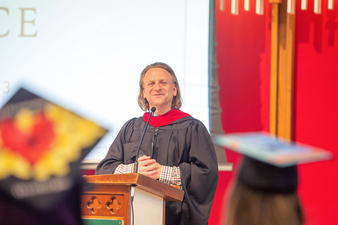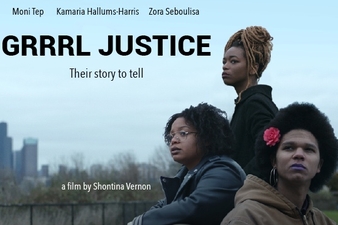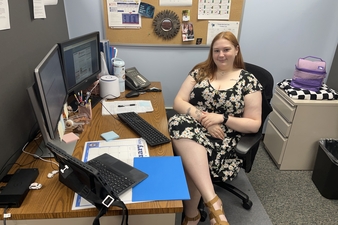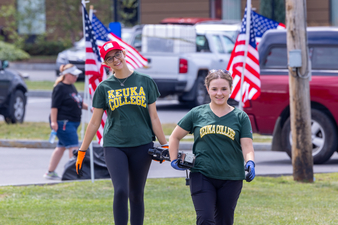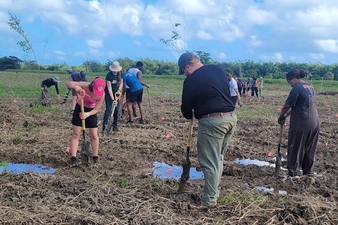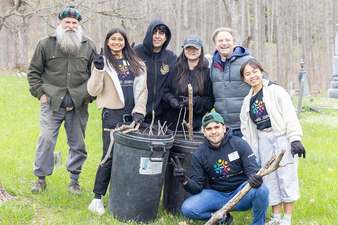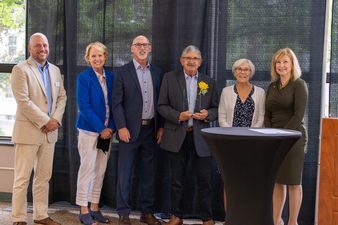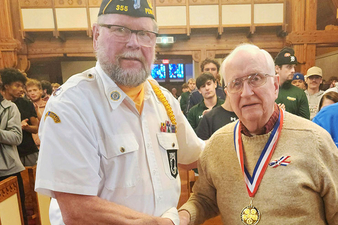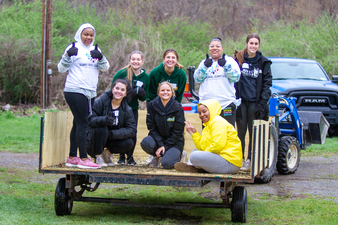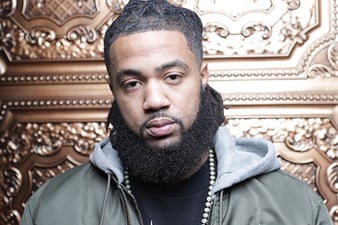Class of this great institution of learning, and ladies and gentlemen.
I need not pause to say how very delighted I am to have the privilege and opportunity of being here today and being on the campus of Keuka College.
With those words, Civil Rights icon Dr. Martin Luther King Jr. began the baccalaureate address on the campus of Keuka College on June 16, 1963.
Long thought lost to the ages, a reel-to-reel recording of this historic address was recently returned to Keuka College by a former employee. The approximately 35-minute speech has now been digitally transferred and will be played for the public at a listening event on campus during Black History Month.
“Dr. Martin Luther King Jr.’s visit to our campus was a watershed moment in the College’s history,” said College President Dr. Jorge L. Díaz-Herrera. “So we are thrilled to have the original recording of this stirring speech back in our possession – and even more excited to share it with the public.”
The public broadcast, which is to include a roundtable discussion and reception, is scheduled for 6:30 p.m. Tuesday, Feb. 20, in the College’s Norton Chapel. It will be free and open to the public. An earlier public broadcast – scheduled exclusively for students, faculty, and staff of the College – is planned for 12:20 p.m. that day, during Common Hour, also in Norton Chapel. Events will also include a related 4:35 p.m. program, roundtable discussions, and an end-of-the-day reception.
The speech, which centers on King’s famous sermon “The Three Dimensions of a Complete Life,” came amid a tumultuous period in the Civil Rights movement. The Birmingham marches against segregation had begun just two months earlier, resulting in King’s arrest on April 12 (Good Friday). It was during this confinement that he wrote his enduring declaration, “Letter from Birmingham Jail.”
And fellow Civil Rights leader Medgar Evers had been assassinated just days prior to the address. Indeed, King came to Keuka Park directly from the June 15 Evers funeral in Jackson, Mississippi. He makes note of the event during his speech, after intoning the words of the Civil Rights anthem, “We Shall Overcome”:
“Before the victory’s won some will have to get scarred up a bit. Before the victory’s won maybe some will have to face what the young man whose funeral I attended yesterday afternoon in Jackson, Mississippi, Medgar Evers, faced, and that is physical death. But we shall overcome. Before the victory’s won, maybe some will have to lose our jobs. Before the victory’s won more will have to go to jail. We shall overcome. And I’ll tell you why, because the arc of the moral universe is long, but it bends toward justice.”
Following his address, King was presented with an honorary Doctor of Letters degree from then-College President Dr. William S. Litterick.
In a July 3 follow-up letter, King thanked President Litterick for the invitation and trustees for the degree: “This is just a note again to express my appreciation to you for making my recent visit to Keuka College so meaningful. Mrs. King and I enjoyed every minute of our visit.”
A little more than two months after his Keuka College address, King would lead the March on Washington, at which he galvanized the nation and the Civil Rights movement with his historic “I Have a Dream” speech.
He was named Time magazine’s “Man of the Year” in 1963 and, the following year, received the Nobel Peace Prize.
King’s widow, Coretta Scott King, returned to the Keuka College campus in 1970 to receive an honorary Doctor of Humane Letters degree from the College.


